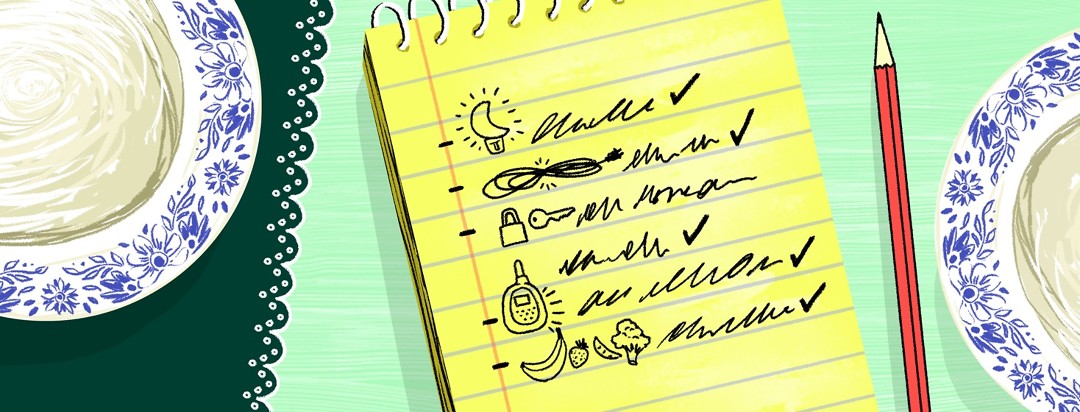Making the Most of Alzheimer's Caregiving at Home
Caring for someone you love who has Alzheimer's is a big step that can be both rewarding and challenging. There are many changes to anticipate. Because the condition is progressive, as needs change, modifications must be made. Choosing to keep your loved one in their own home or your home (if those are different) is an important decision along the caregiving pathway.
Making active choices will help to offer the best care and do the best job of taking care of yourself. It is essential to good caregiving. Providing care in an optimal way for each person with Alzheimer's involves a number of evaluation steps to ensure both that person's health, safety, and welfare, as well as your own.
Understand how much care is needed
Make a list of all the tasks you do during the day and at night. You can break them down into personal care, companionship and supervision, homemaking, and skilled services. Once you understand how much you are doing, it may be time to evaluate what kind of help you need. That could be in the form of home services from an aide, friend, volunteer, or family member.1-3
Remember that sharing responsibilities with others will allow you to have a break and keep up with your work, family, and other responsibilities. Be creative and flexible in the ways you ask for help.
Safety in the home
Preparing a home for someone with Alzheimer's takes planning and a careful review. A loose rug or dog toys on the floor, which were once just a nuisance, could now be a hazard. Just as you may have once baby-proofed the home, it is important to revisit what in the surroundings could be harmful.1
A physical or occupational therapist could help do an evaluation. There are also expert services for hire and checklists available in books and online.
The basics
Avoid clutter. Create clear pathways for walking, limiting furniture, electrical cords, table décor, stray bags, objects, and plants. The objective is to prevent someone from tripping, falling, breaking bones, or eating something that can hurt them. Consider removing door locks so they do not lock themselves in a bedroom or bathroom.1-3
Kitchen: Keep knives put away and breakables out of reach. Use safety knobs on the stove and install safety latches on cabinets and drawers to secure dishes, silverware, detergents, and other items that could be sharp or harmful if swallowed.2
Bedroom: A baby monitor or home surveillance camera system can let you hear or see if your loved one has gotten out of bed at night or after a rest. Limit access to thermostats and electric heating devices, including blankets with cords or portable heating devices, which can be tripping or fire hazards.1-3
Bathroom: Like the kitchen, keep cabinets latched to prevent access to harmful things, including cleaning products, nail scissors, etc. Install grab bars by the toilet, in the bath, and shower. Consider a shower chair or bench for safety. Cover the floor if it is a naturally slippery surface. Water temperatures can be restricted to prevent hot water burns.1-3
Laundry/Garage: If possible, restrict access. If not, the same rules apply – lock up hazardous chemicals and sharp or heavy tools and lock car doors with car keys out of reach.1-3
Be prepared
Don't leave your loved one with Alzheimer's unattended at home. Keep a list of emergency phone numbers posted throughout the house. Use night lights to illuminate hallways. If you have stairs, put up a gate so the stairs are not accessible when your loved one is unaccompanied. If you have someone who wanders, let your door attendant or neighbors know to call you if they see your family member unattended in the neighborhood.1-3
The importance of nutrition
Eating healthy is important to staying healthy and strong, not just for people with Alzheimer's. A good nutritional program can help both caregivers and their loved ones keep up their stamina, prevent colds, and avoid other conditions like heart disease and diabetes.
Eat a diet rich in fruits, vegetables, fiber, and protein. Some people suggest that the Mediterranean diet is an excellent plan to follow.
As the disease progresses, a person with Alzheimer's may no longer be able to feed themselves. Watch for safety in swallowing and make adjustments in dietary offerings as needed. A swallowing expert can provide exercises, advice, and special instructions on a soft diet if needed. If there are certain preexisting dietary restrictions, be sure to follow the advice of your doctor.
Changing needs
Like with all care for people with Alzheimer's, you will need to reevaluate their existing care plan as their needs progress. Make sure your current home care setup can continue to maintain and manage the best interests of your loved one as their condition worsens.
To identify and learn about local resources, consider the options below:
- Medicare-certified home health agencies in your local area can be identified using an online tool from Medicare.gov.
- Community Resource Finder can link you to local information about programs near you, including adult day care programs, community offerings, transportation assistance, attorneys, and healthcare case managers that specialize in assisting older adults and people with Alzheimer's.
- The US Administration on Aging has tools and resources for older adults, their families, and caregivers.

Join the conversation